More information about the Keynote speakers will be available soon.
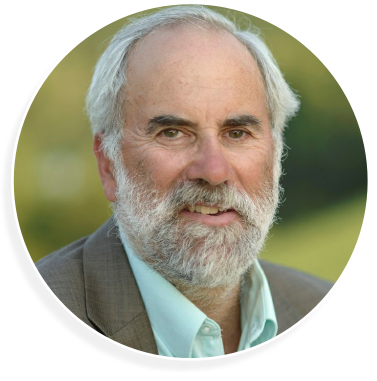
|
KEN NORTON EXECUTIVE DIRECTOR,NAMI NH The Connect Program: Engaging Communities in A Proactive and Coordinated Response to Reduce Risk and Promote Healing In The Aftermath of A Suicide
PRESENTATION SUMMARY
Appropriate response in the aftermath of a suicide death is an essential component of effective suicide prevention efforts. A suicide or other untimely traumatic death can have a devastating impact on a community. The shock and grief can go well beyond family and can extend to friends, coworkers, schools, faith communities, and other sectors of the community. When key stakeholders are provided with education and training in best practices on how to provide a coordinated and integrated response, as well as informed about the potential impact of trauma and grief, it can promote healing and reduce further risk to others. Using NAMI NH’s Connect Suicide Postvention Program as a model, the keynote will explore the importance of engaging a community in postvention training and response. BIOGRAPHY
Ken Norton is the Executive Director of NAMI NH, the National Alliance On Mental Illness. Ken led the development of NAMI NH’s Connect Suicide Prevention Program, which has received national and international recognition for its community based approach to suicide prevention, intervention and postvention. The Connect program has provided training across the US including over 30 American Indian Tribal Nations and with Alaskan Native, and Asian Pacific Island Communities as well as in five countries. Ken has served on numerous national committees including the National Suicide Prevention Lifeline Steering Committee, the National Action Alliance For Suicide Prevention Survivor of Suicide Loss Task Force which wrote the US guidelines for responding to a suicide death, and the workgroup which revised the national recommendations for media reporting on suicide. He has also served as a subject matter expert for the US Substance Abuse and Mental Health Services Administration, the Department of Defense and Veterans Administration. Ken has presented throughout the US, as well as internationally on issues related to mental illness, suicide prevention, and bereavement, and has won numerous awards for his mental health advocacy. Ken has personal experience dealing with mental illness and suicide from the family perspective and has also worked extensively in community mental health as a licensed clinical social worker. Ken has served as a foster parent and is an active volunteer in his community working on environmental and social justice issues. Ken enjoys spending time with his family and being in the great outdoors. |

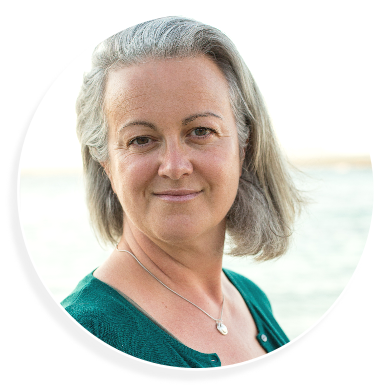
|
ANNA WARDLEY ENDURANCE SWIMMER, SUICIDE CAMPAIGNER AND 'INSPIRATIONAL WOMAN OF THE YEAR 2013' Turning the Tide - Swimming beyond the pain of suicide loss PRESENTATION SUMMARY British record-setting endurance swimmer, charity fundraiser and suicide campaigner Anna Wardley shares how the death of her father, who took his own life when she was nine years old, had a profound impact on her life and how she is on a mission to improve the support for young people who lose a parent to suicide in the UK. After taking up swimming in her 30s with the goal of swimming the English Channel and managing her own depression, she has taken on some of the world’s most challenging open water swims in a bid to turn the tide and restore hope. In 2013 she was named Inspirational Woman of the Year in the Johnston Press South Awards in recognition of ‘her incredible swimming achievements and outstanding efforts raising money for charity’. She recounts how her first attempt to swim the English Channel in 2007 came to an abrupt end when she was hospitalised after being pulled out a few miles from the French coast. Swimming to raise funds for
a suicide charity in memory of her dad, she has raised in excess of £75,000 for
causes close to her heart.
History repeated itself a
week after her successful Channel swim in 2009, on a grueling second attempt,
when her mum’s partner of 22 years also took his own life. This second loss to
suicide cemented Anna’s determination to shine a light on suicide and the plight
of those left behind.
With the support of a WInston Churchill Memorial Trust Fellowship, Anna is visiting Australia, the USA and Denmark to research support for children after the loss of a parent to suicide. By visiting groundbreaking international projects Anna aims to inform and inspire the provision of support for children bereaved by parental suicide in the UK. BIOGRAPHY In September 2013 Anna Wardley became the first person in three decades to swim around the Isle of Wight, completing the 90km swim in 26 hours and 33 minutes. It was the culmination of her Five Island Swim Challenge, which included a 65-km swim around Jersey in the Channel Islands and a world record swim around Portsea Island, home to the city of Portsmouth. After taking up swimming
in her 30s, Anna has tackled some of the world’s toughest endurance swims
including competing at the World Ice Swimming Championships, crossing the
Strait of Gibraltar from Europe to Africa, the Hellespont from Europe to Asia,
and a 90km non-stop swim around the Isle of Wight off the south coast of
England, which took more than 26 hours.
Anna has raised £75,000 for charity through her
swims including over £16,000 for the Samaritans in memory of her dad, who she
lost to suicide when she was nine years old. After suffering with depression
herself, Anna took up open water swimming to improve her own mental health and
to raise both funds and awareness for suicide-related causes. That decision
transformed her life and in 2013 she was named Inspirational Woman of the Year
in the Johnston Press South Awards in recognition of ‘her incredible swimming
achievements and outstanding efforts raising money for charity’.
Anna took up swimming after
reading a newspaper article about someone swimming from England to France and
set her sights on the same challenge. She taught herself front crawl at her
local pool, and made her first Channel attempt the following year. She was
pulled out after 14 and a half hours, a couple of miles from the French
coast, and was hospitalised with hypothermia, shock and exhaustion.
After a year out of the water, she returned to face
her demons two years later and made it to France in 21 hours and 20 minutes
despite getting badly stung by jellyfish and swimming through dense fog and
pitch darkness. She was awarded the Channel Swimming Association’s Greatest
Feat of Endurance Trophy for the crossing.
Anna has also sailed 36,000 miles as part of a
12-strong international crew in the Clipper Round the World Yacht Race, founded
an award-winning international PR and event management agency and now works as
a coach, inspirational speaker and humanist funeral celebrant. She has been
shortlisted for a Winston Churchill Memorial Trust Fellowship to research
support for children bereaved by parental suicide in Australia, the USA and
Denmark.
s
Further information: www.annawardley.com Twitter: @annawardley |

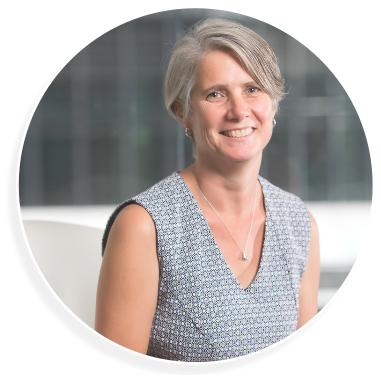
|
PROF. MYFANWY MAPLE
Learning from the experience of others -
can lived experience influence suicide prevention?
PRESENTATION SUMMARY
Much of the history of research in the field of suicide prevention is borne from investigator led research aimed at understanding risk and protective factors of those who may be most vulnerable to suicide. Interventions to prevent suicide have resulted from attending to these risk factors. The often called ’third pillar’ of suicide prevention - postvention - has not received the same attention. Yet, in recent years evidence has been gathering to demonstrate that there are significant populations of individuals affected by the suicide of someone known to them, bringing new focus onto the lived experience of suicide exposure. Dr Maple will explore the insights that those with lived experience of suicide can contribute to suicide prevention beyond what has historically occurred, as well as present data on the facilitators and barriers that people experience when contributing to suicide prevention research, policy and practice. BIOGRAPHY
Myfanwy Maple is Professor of Social Work in the School of Health, Faculty of Medicine and Health at the University of New England in Armidale, New South Wales, Australia. For more than 15 years, Professor Maple’s research has focused on trauma and loss, with a particular emphasis on understanding risk and resilience following exposure to suicide. A focus on lived experience underlies all of Professor Maple’s work where her emphasis remains on authentically including the voices of those with firsthand experience to better inform policy, research and teaching. While research is her key activity, she is also involved internationally, nationally and locally in activities to prevent suicide and the distress associated with suicide. She is currently chair of the International Association for Suicide Prevention special interest group on suicide bereavement and postvention and was a member-elected Director of Suicide Prevention Australia (2013-2018), during which time she also chaired the annual National Suicide Prevention Conference (2015-2018). She is an ASIST trainer, delivering suicide intervention skills training to members of rural communities. Previously, Professor Maple was appointed by the NSW Minister for Health as an Official Visitor under the Mental Health Act from 2006 through 2012, and in 2014, Professor Maple was awarded a prestigious rural and remote diversity scholarship jointly awarded by the Australian Institute of Company Directors and the Prime Minister’s Office for Women. |

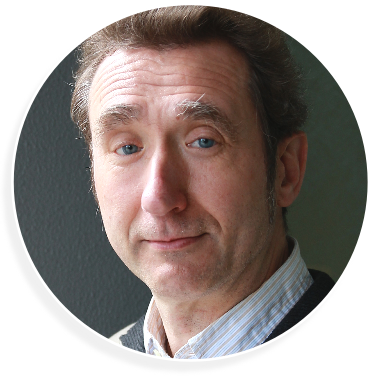
|
KARL ANDRIESSEN, PhD PRESENTATION SUMMARY
Death of a relative or a friend is a potentially disruptive event in the lives of adolescents, and puts them at-risk of adverse health and social outcomes. Little is known about their help-seeking experiences. This presentation is based on research directly with bereaved adolescents. It will describe the grief and mental health of adolescents bereaved by suicide or other causes, in terms of grief and potential for personal growth. The presentation will also outline positive and negative experiences of bereaved adolescents with help-seeking from social support, school, online and clinicians, and will highlight barriers and facilitators for help-seeking. The presentation will inform family, friends, and counsellors/clinicians on how to better understand and support bereaved adolescents. BIOGRAPHY
Karl is a well-known researcher in the field of suicide bereavement and prevention,
and worked in Belgium, Australia, and internationally. He is particularly
interested in connecting findings from research and practice, as both
perspectives are needed in understanding what works in suicide bereavement
support. His involvement is strongly rooted in clinical practice, starting 30
years ago as a Social Worker in youth and family counselling, and telephone
crisis lines, followed by leading positions in suicide prevention, bereavement,
helplines, community mental health centres, and policy development. He holds a Master in Suicidology from Griffith University, Brisbane (2006), and
obtained his PhD (2018) from the School of Psychiatry, University of New South
Wales, Sydney, on a study investigating the grief, mental health, and
help-seeking of adolescents bereaved by suicide and other causes of death.
He is the recipient of several national (for example: Outstanding International
Health Alumnus of the Year Award 2017, Griffith University) and international
awards (for example: International Association for Suicide Prevention (IASP)
Farberow Postvention Award 2005), and served as Chair of the IASP Special
Interest Group on Suicide Bereavement, 2002-2015.
Karl has published widely, and is the principal editor of “Postvention in
action”, the world first “International handbook of suicide bereavement
support” (Hogrefe, 2017). He is an advisor to several Australian projects in
the field of mental health, suicide prevention and bereavement. Currently, he
is a NHMRC Early Career Fellow at the Centre for Mental Health, School of Population and Global Health, the University of Melbourne.
|

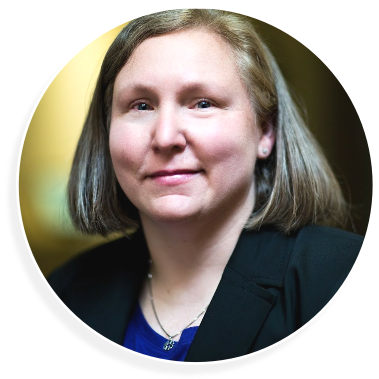
|
DR JULIE CEREL
You’re not alone:
Suicide impacts us all It has been a long-held notion that each suicide only effects six people. Anyone impacted by suicide knows this is far from reality and that each suicide impacts families, schools, workplaces and whole communities (#not6). Recent research, using a variety of different methodologies has shown that over half the American population personally knows someone who has died by suicide. Dr. Cerel will describe how suicide effects an entire continuum of people left behind. She will describe work showing how suicide exposure in the workplace effects a wide variety of workers- from members of the military to first responders, mental health clinicians and members of the clergy.
Dr. Cerel is a licensed clinical psychologist and Professor in the College of Social Work at the University of Kentucky. Her research has focused on suicide exposure/bereavement, suicide attempt survivors and suicide prevention. She currently serves as President of the American Association of Suicidology. She completed her PhD from The Ohio State University, an internship and post-doctoral fellowship from West Virginia University and a post-doctoral fellowship specifically in suicide prevention from University of Rochester. She has served as Research Division Chair and Board Chair of American Association of Suicidology. She is the author of over 65 academic publications and co-author of Seeking Hope: Stories of the Suicide Bereaved. Her work has been funded by the Military Suicide Research Consortium from the U.S. Department of Defense, the CDC, SAMHSA, SPAN-USA and AFSP. She is an Editorial Board Member for Suicide and Life-Threatening Behavior. Dr. Cerel mentors and collaborates with a diverse group of undergraduate, graduate and doctoral students at UK and internationally. Her work on suicide exposure has recently been expanded to examine the correlates and consequences of work-related suicide exposure for law enforcement officers, first responders, mental health professionals and other workers.
|

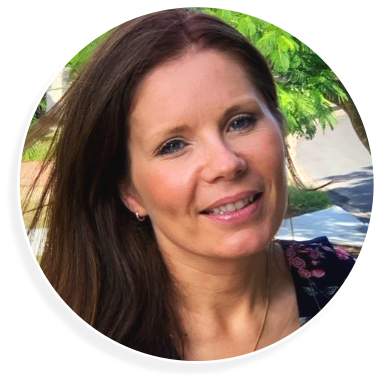
|
NIKKI JAMIESON PRESENTATION SUMMARY Diagnoses
often associated with combat experiences, including post traumatic stress
disorder (PTSD), do not sufficiently explain elevated suicide rates of those
in, or with prior, military service. In fact, suicide deaths among former
Australian Defence Force members is 14% higher than the general population.
Modern theorists suggest that the concept of Moral Injury (MI) may help to
explain increased vulnerability to suicide among veterans. Often mistaken or
misdiagnosed as PTSD, MI is a new concept in military research and clinical
practice that has gained attention as it links shame and suicide. These
associations move beyond past notions of fear-based trauma reactions that are
commonly associated with PTSD and instead focus on the intrapersonal conflicts
manifesting through feelings of shame, guilt and self-condemnation. When
combined it is theorized that these can increase the risk of suicide. Thus, MI
consists of existential angst, shame and guilt, damaged identity and disrupted
personal narrative. These are parts of our being that encompass a vast range of
values and virtues. Therefore, MI can be considered a physical response and a
social construct. Moral is a term rich in meaning: what moral means, and to
whom, and for what reason, is highly contested and frequently challenged. This
presentation will explore MI and how this concept can assist in understanding
the complex nature of suicide among military and veteran populations
Nicola Jamieson (Nikki) is an AASW registered Social Worker
who was born in the UK, moving to Australia in 2006 with her son Daniel died by
suicide in 2014, whilst serving in the Australian Defence Force (ADF).
For over two decades Nikki has worked in UK and Australia across Government and community sectors. Since Daniel’s death, Nikki has completed her Masters in Suicidology and has appeared in a range of media detailing her journey in suicide bereavement. Nikki has attended the ADF Senate Inquiry (Mental Health of ADF serving personnel - 2015) and advocates for improved service delivery and mental health provision for ADF members. Nikki is a doctoral research student with The University of New England utilising innovative and comprehensive research to explore the concept of Moral Injury in former defence members. The provisional title of her thesis is: “A war within: Making sense of suicide through narratives with former Australian Defence Force Members” and is supervised by Professor Myfanwy Maple and Doctor Dorothy Ratnarajah. The concept of Moral Injury in Australia is explored in a paper due to be published this year. |


|
DR SHARON McDONNELL
BIOGRAPHY
Sharon McDonnell is the Managing Director of Suicide Bereavement UK (SBUK) and
Honorary Research Fellow at the University of Manchester (UoM). She is one of
the leading researchers in this field in the UK. Prior to setting up
SBUK, Sharon worked at the Centre for Mental Health and Safety at the UoM,
which is the largest suicide prevention research department
internationally. During her time at the university, Sharon and her team
conducted a three year study, which informed the development of evidence-based
suicide bereavement training, entitled ‘Postvention Assisting Those Bereaved
by Suicide’ (PABBS), which is first of its kind internationally. Sharon is
currently leading a large scale national suicide bereavement survey, which aims
to identify the experiences and perceived needs of those bereaved or affected
by suicide. A report will be launched on the 25th September 2019. Findings will be of national and international
importance.
Sharon also hosts an annual international suicide bereavement
conference in the UK, which is now in its 8th year. Over 400
delegates from nine countries attend this event. Sharon has been personally
bereaved by suicide.
|

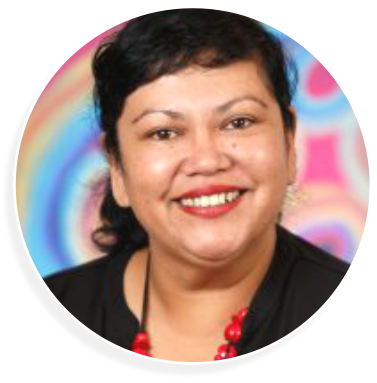
|
ADELE COX Adele’s
research and consultancy work has a focus on advocacy for Aboriginal and Torres
Strait Islander health; particularly in mental health and suicide prevention.
She has held senior roles with a range of research and evaluation projects
including the National Empowerment Project and the Aboriginal and Torres Strait
Islander Suicide Prevention Evaluation Project and more recently, held an
academic role at the University of Western Australia.
Adele
is currently a member of the Aboriginal and Torres Strait Islander Mental
Health and Suicide Prevention Advisory Group and the National Aboriginal and
Torres Strait Islander Leadership in Mental Health group.
|

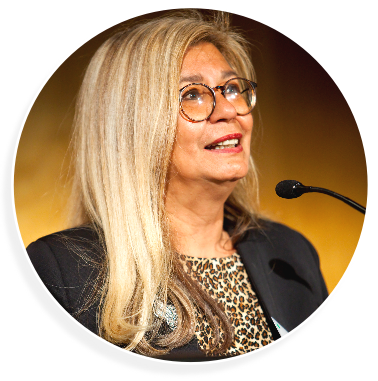
|
PROF. PAT DUDGEON She is the executive director
of the National Empowerment Project: an Indigenous suicide prevention
project working with eleven sites in Aboriginal communities across the
country, the Aboriginal and Torres Strait
Islander Suicide Prevention Evaluation Project and the Centre of Best Practice in Aboriginal and Torres Strait Islander
Suicide Prevention
|

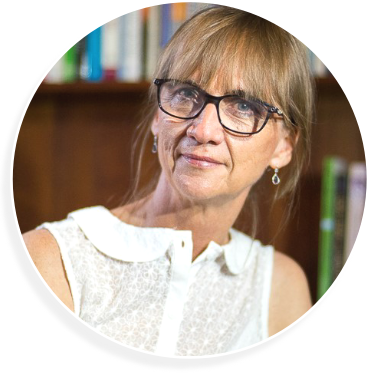
|
ASSOC. PROF. JUDITH MURRAY The Lived Experience of Loss: Uneasy Bedfellows PRESENTATION SUMMARY Our society often thinks about, and communicates the experience of loss as if it is one-dimensional, an experience of complete deficit that is resolved to return to a state of stability and potentially even renewed happiness after a time. Yet anyone who has lived the experience of loss knows that the experience of loss is more one of trying to hold at bay and within the same moment uneasy bedfellows of equally legitimate parts of the experience. This presentation will explore some of these uneasy bedfellows and consider how they are united within the experience of grieving our pain.
BIOGRAPHY
Judith is currently an Associate Professor in Counselling and Counselling Psychology at The University of Queensland Australia. Judith has been the Director of the Master of Counselling Program from 2003-2010 and since 2015. She also assisted in the establishment of the Master of Applied Psychology (Counselling) at UQ. Previous to this position she was responsible for the establishment of a Loss and Grief Unit in the Centre for Primary Health Care in the School of Population Health. Judith is also a registered nurse having worked part time from 2010-2016 in Haematology and Oncology at The Princess Alexandra Hospital, Brisbane, Queensland.
Judith is a qualified secondary school teacher, psychologist, and nurse. She is the author of numerous papers, and resource packages and books. She has served on a number of national consultations for bereavement, postvention and children’s grief and is on the Board of a national aid organization. Judith has worked consistently to further the use of loss as an integrative concept within the health, welfare and education sectors which is articulated in the book “Understanding Loss: A Guide for Caring for Those Facing Adversity” (Routledge).
” (Routledge).
|




